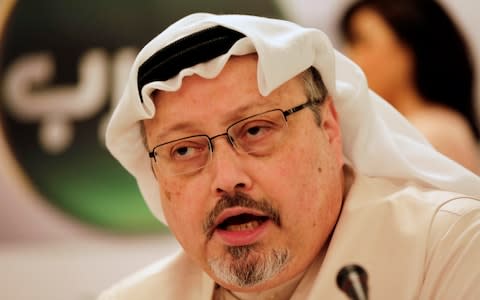In 'final column' missing writer Jamal Khashoggi says Arab states can silence media with impunity

Jamal Khashoggi's words could not be more powerful or more poignant.
In a column published by the Washington Post on Wednesday night, the missing Saudi journalist says Arab governments have been given free rein by the international community to silence the media at an accelerating rate, in a piece that apparently foreshadowed his own fate.
The writer has not been seen since entering the Saudi consulate in Istanbul a fortnight ago.
Turkish officials say they have obtained audio recordings that suggest he was tortured and killed although the government of Saudi Arabia insists it does not know what happened to the prominent dissident.
In a note published with the column, Karen Attiah, global opinions editor at The Washington Post, said the piece perfectly captured Khashoggi’s commitment to freedom in the Arab world: "A freedom he apparently gave his life for."

She said she received it from his translator a day after he disappeared.
“The Post held off publishing it because we hoped Jamal would come back to us so that he and I could edit it together,” she wrote.
“Now I have to accept: That is not going to happen. This is the last piece of his I will edit for The Post.”

In his piece, Khashoggi describes how the optimism of the Arab Spring in 2011 was quickly dashed, replaced by the Middle East’s version of the Iron Curtain, imposed by domestic forces as they grappled for power.
The rest of the world has done little as journalists were arrested or newspapers silenced, he continues.
“Instead, these actions may trigger condemnation quickly followed by silence,” he writes.
“As a result, Arab governments have been given free rein to continue silencing the media at an increasing rate.”
He calls for a modern form of the old transnational media – something akin to Radio Free Europe that began broadcasting during the Cold War – to provide a platform for Arab voices.
“We suffer from poverty, mismanagement and poor education,” he writes. “Through the creation of an independent international forum, isolated from the influence of nationalist governments spreading hate through propaganda, ordinary people in the Arab world would be able to address the structural problems their societies face."

